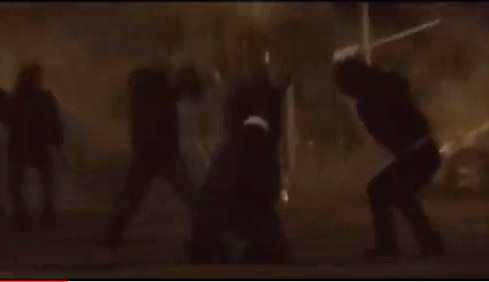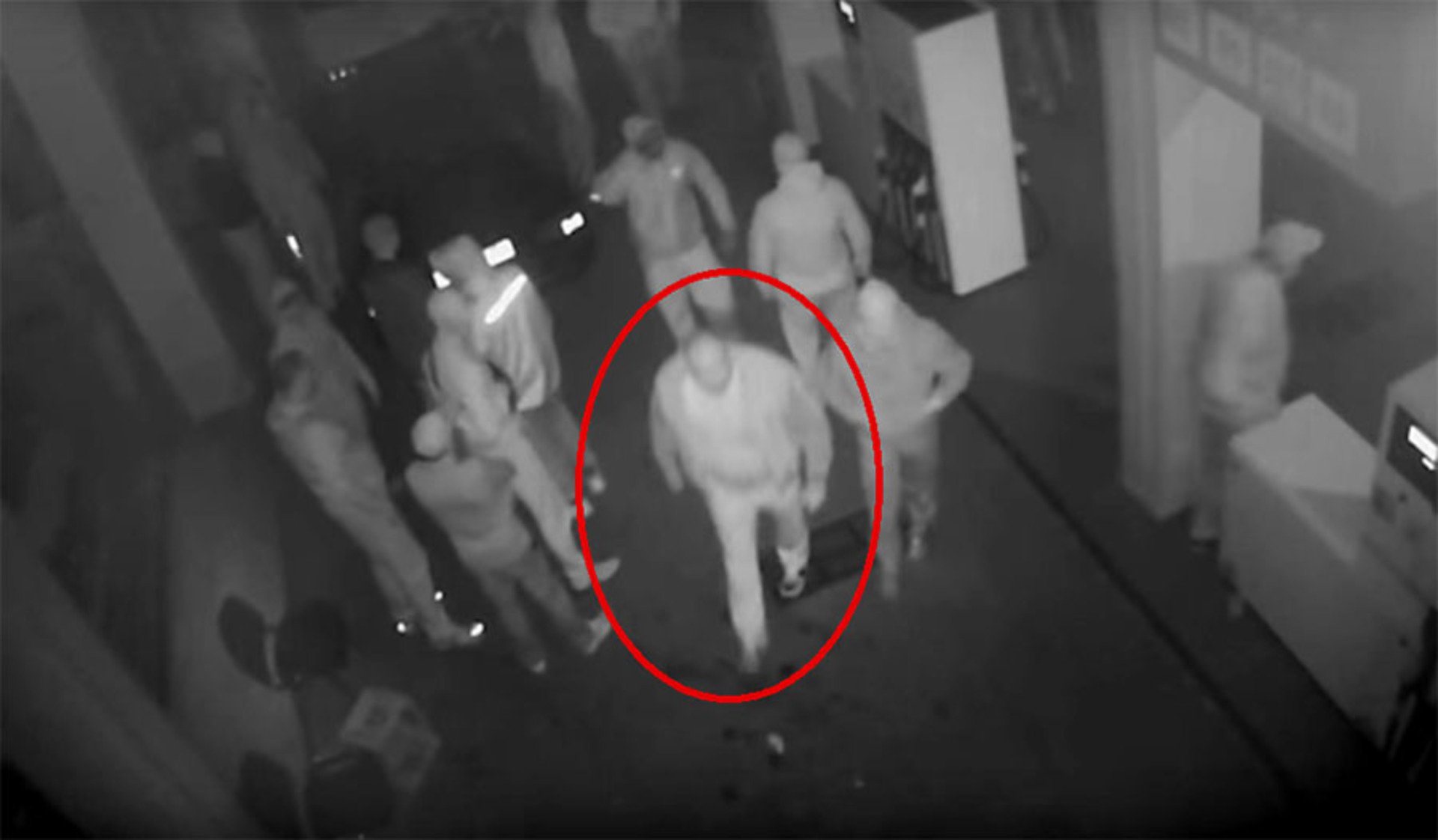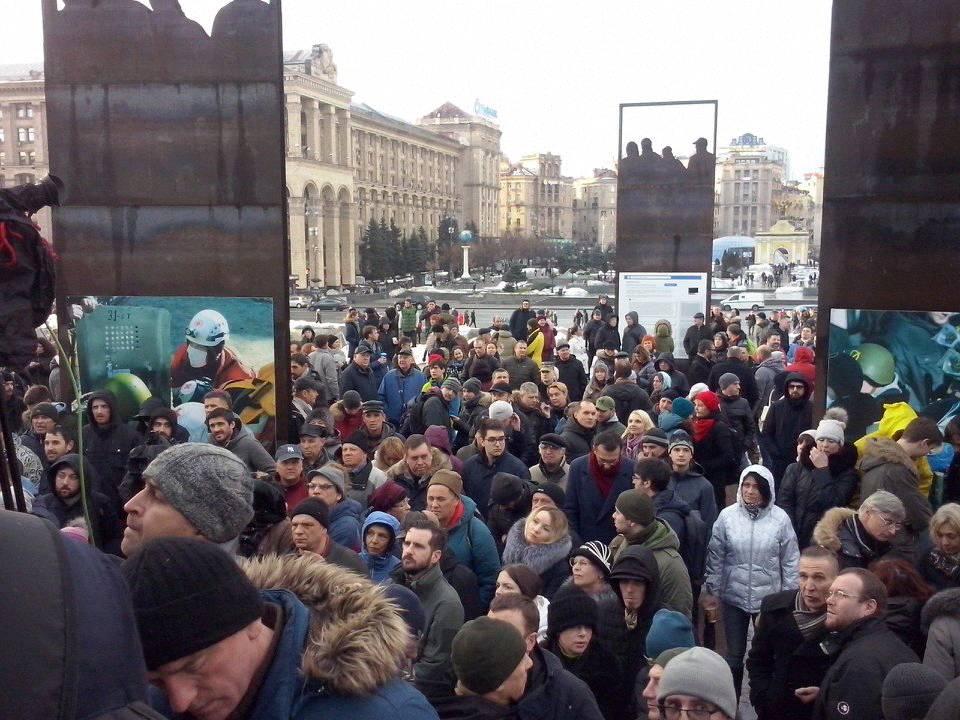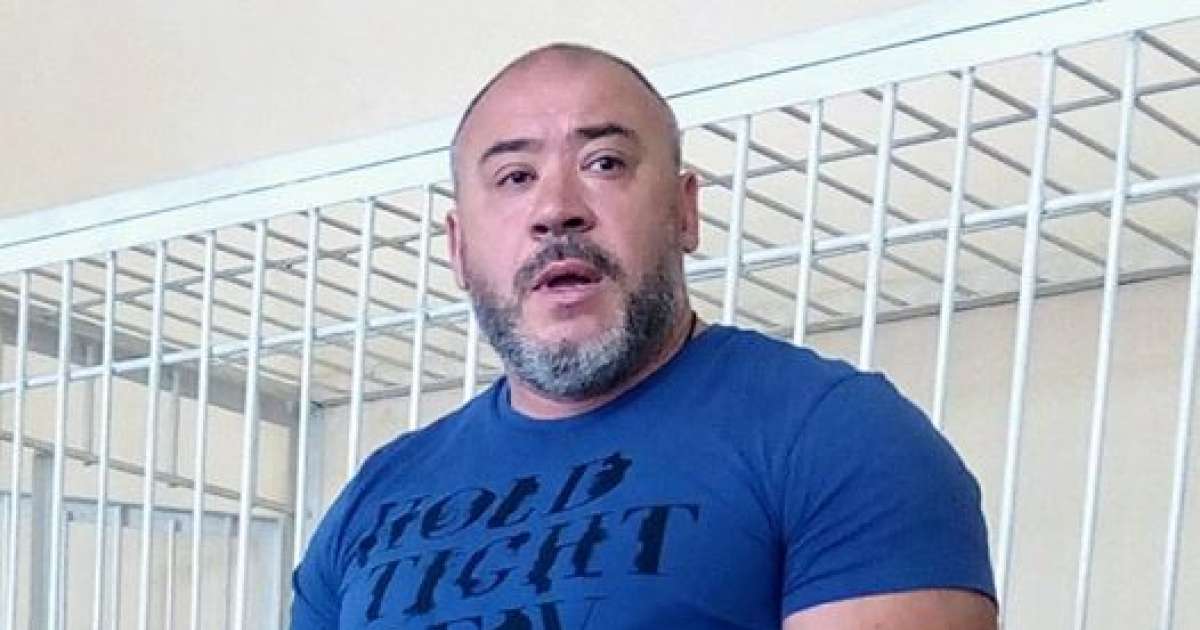It was February 2014. Anti-government protests had been going on in Kyiv’s central square, the Maidan, for three months. Dubbed “Euromaidan,” they started when President Viktor Yanukovych backed out of signing the Association Agreement with the EU on 21 November 2013 but grew into a protest against the regime in general. Police brutality against the protests only made them grow more. To deliver a stealthier attack against the protesters, government forces relied on mercenary agents, who, acting as street hooligans, assisted them by performing illegal acts. They were christened as “titushky” thanks to Vadym Titushko, who became famous thanks to his attack on journalists in May 2013.

Predominantly coming from a lumpenized environment, the titushky, most of whom had a sports or martial arts background but not political savviness, participated in street beatings, carjackings, and kidnappings together with the riot police, and were used to intimidate, injure, and kill Euromaidan protesters and journalists. Multiple footages from those times show titushky working as a team with the riot police.
The use of titushky by the government were just coming to light during the Euromaidan protests. On the night of 19 February 2014, journalist Viacheslav Veremiy started photographing armed and masked titushky at a street near the city center from inside of a taxi in which he was returning home from work with a colleague. The titushky attacked the car and dragged out the driver and passengers. The colleague and driver managed to escape, but Veremiy was beaten and shot at with a gun. The police officers present at the spot did not interfere. He died at 6 AM inside a hospital, leaving behind a wife and small child.

One of the masked armed men beating up Veremiy was Yuriy Krysin. But he was no regular titushka; he was in charge of the entire squad. In 2015, Ukraine’s Prosecutor General’s Office presented the results into a probe of the titushky-system of Yanukovych’s regime. According to it, then Minister of Interior Vitaliy Zakharchenko oversaw the scheme, his subordinates maintained relations with criminal gangs and gave them weapons, and direct organizers, like Krysin, rounded up the titushky-to-be and transported them to the places of action. In Krysin’s own words, the titushky from his group received $25 daily for their “work” while he was paid $20,000 for a “complex of services,” part of which was his self-reported ability to summon 3,500 thugs in an hour.
Most of the organizers of the titushky-system managed to escape and are wanted by Interpol or Ukraine; four lower-end organizers, including Krysin, were placed under trial.
However, on 22 December 2017, Krysin was given a mere 4-year suspended sentence despite having committed two more crimes – all while being on the dock. This isn’t the first time Krysin has walked free after committing crimes, with lawyers and prosecutors giving him extremely diluted sentences in what the “Heavenly Hundred” association of lawyers working to establish justice for Euromaidan activists says is no less than “magic.” In a joint statement, a number of legal and media experts are more direct, explicitly pointing to the failure of the judicial reform to lustrate judges who compromised their integrity by collaborating with the Yanukovych regime.
Krysin’s “mystical” immunity from justice

Yuriy Krysin is no stranger to the world of crime. Coming from a criminal organization of eastern Ukraine, he spent the last 10 years living in the capital Kyiv, where in 2010 he was tried for “intentional murder,” later downgraded to “murder through negligence,” had participated in raider seizures of a parking lot, a market, and two apartments. On 19 February 2014, he was filmed beating up the wounded journalist Veremiy together with other titushky. A month later he was taken under custody, but in late May, his charges were downgraded from “murder” to “hooliganism,” he was given state protection due to alleged danger to his life, and his preventive measures were downgraded from jail to house arrest.
Immediately after, he ordered his affiliated titushky to dig out a rifle, gun, and sniper scope from a forest near Kyiv and bring them to his home. Despite this, in August 2014 his house arrest measures were downgraded again, now changed to “personal commitment,” in which Krysin promised not to speak to the witnesses in his Euromaidan trial – a promise which he violated up till the end of 2014, prohibiting witnesses to speak about explosives titushky used against Euromaidan protesters back in February.
In October 2015, Krysin was arrested once again during a shootout in Kyiv when a gang he organized was extorting money from bus drivers. But Kyiv prosecutors incriminated him not with extortion, but illegal storage of a grenade which was found in his car. In March 2016, he was given a three-year suspended sentence for the grenade, with a one-year probation period. Immediately after, Krysin together with 60 titushky organized a raid on a network of 19 fuel stations purchased by Latvians, to the inaction of police. Despite videocams capturing how Krysin shot at a worker of the fuel station in May 2016, his crime was qualified as hooliganism – not raiding, not creating a criminal gang to extort money.
Yet on 23 December 2016, Krysin is - again – released from custody under house arrest, despite having violated preventive measures and his probation period with the shootout with the bus drivers, and managed to get wrapped up in another criminal case. If that wasn’t enough to make the absurdity of the situation skyrocket, one must consider that Krysin was given state protection due to a “danger to his life” in the Euromaidan murder case – which means that the digging out of weapons, storage of a grenade, and armed raids all took place under the surveillance of state law enforcers!
The appeals of prosecutor Oleksiy Donskyi to take Krysin under custody for both the Euromaidan murder and the fuel station raid were declined by the judge. Under these conditions, was it surprising that on 14 September 2017, the victim in the fuel station case changed his testimony, now alleging that he wasn’t shot at by Krysin after all?
On 22 December 2017, Yuriy Krysin received his sentence in the case of the murder of Viacheslav Veremiy: a four-year suspended sentence with a two-year probation period, instead of the six years in jail asked by the prosecution. In an interview, prosecutor Donskiy said that Krysin’s original murder charges were downgraded to hooliganism when a version arose that it was not him but his fellow titushka Dzhalal Aliyev, later killed among the pro-Russian separatists in Donbas, pressing the trigger of the gun that killed Veremiy, and Krysin just beat him up in an act of hooliganism. All this despite Krysin being in charge of Aliyev, and the entire titushky group.
However, human rights activist Mariya Tomak claims that the open source videos from the incident clearly show that the gunshot sounded first, and afterwards were followed by beatings, which would clearly change Krysin's role to a more heavy one. Krysin pleaded guilty to committing the beatings, and his judge Oleh Linnyk said that the accused has no criminal records (as we see above, this is fundamentally false), but instead has good job recommendations as well as mitigating circumstances: he confesses his guilt and is the father of two young children. We are prevented from admiring the text of the decision: it was classified, as the court process itself was classified due to an alleged threat to Yuriy Krysin’s life [UPDATE: following a public outcry, the court decision was published on 29 December 2017].
Just theoretically, would simple hooliganism cause a threat to the life of the accused? The question is rhetorical.
As a cherry on the top, four days later the same judge, Oleg Linnyk, released two more titushky who are accused of murdering six protesters on Maidan square, under conditions of house arrest. Like Krysin, they are prohibited from communicating with the witnesses in their case.
How is all this even possible?

By now, you may be wondering how this travesty is possible. Some 200 protesters in central Kyiv were doing the same on 25 December, after Krysin’s sentence was publicized in the press.
Viktoriya Deineka, the lawyer of the mother of journalist Viacheslav Veremiy, said that, although reclassifying his sentence to an intentional murder requires additional proof, a suspended sentence is inadequate to even his stated guilt. Lawyer Roman Maselko insisted that judge Linnyk was supposed to be on the dock along Krysin, not in the judge’s seat: he is one of the judges passing unlawful decisions against Euromaidan activists on the government’s order in 2013-2014, which is grounds for three to seven years in prison. His case, however, was closed.
Meanwhile, the Ukrainian outlet Insider wrote on 26 December 2017, relying on its sources, that Krysin has connections to current high-standing officials, particularly, to the Chief of Criminal Police Viacheslav Abroskin and the Head of the Department of Homeland Security of the National Police Yevhen Koval. It wrote that Krysin was under the “care” of these two officials until 2014, but after Euromaidan, they try to distance themselves from him. Additionally, according to the outlet, Krysin is longtime friends with Oleksiy Savchenko, the current head of the Mykolayiv regional administration, who earlier worked in the Directorate for combating organized crime in the Ministry of Interior. Insider’s source, however, said that Krysin’s feather-light sentence was the result of the direct bribing of the judge, not an order from above.
The outcome of Krysin's case, a number of Ukrainian legal organizations claimed in their joint statement, is a direct consequence of a failed judicial renewal, as a result of which judges are still confident in their impunity and unaccountability before society. According to them, the system of disciplinary responsibility of judges is not working. The case against Linnyk’s unlawful decisions was closed without a result. Other judges who carried out unlawful decisions against Euromaidan activists passed the qualification assessment of the High Qualification Commission of Judges; only 10% of the judges passing such decision were fired. The High Council of Justice acted on only 3.7% disciplinary complaints against judges. All this is happening while the authorities increasingly crack down on activists: three of them are being incriminated with 4 to 7 years in jail after throwing eggs at an MP during a rally.
It is the bodies of judicial and prosecutorial governance that carry responsibility for this situation, the statement asserts, as well as the existing political elites “who control the justice system and use it not for the protection of human rights, but for their political ends.”
To change the situation, the procedures of disciplinary responsibility of judges must be reviewed, as well as the composition of the organs of governance. Otherwise, Ukrainians will grow more and more dissatisfied and lose hope for positive change. Radicalization of society will also grow, the statement warns.
Not all is lost with Krysin
There is still room for hope that justice will prevail in the case with Krysin. The Prosecutor General’s office has lodged an appeal against the decision on a suspended sentence in Krysin’s case. The Ukrainian court's decision has already been criticized by OSCE Representative on Freedom of the Media Harlem Désir. Should there be enough attention to the appeal, Ukraine’s ruling elites might decide that the negative publicity is not worth it and lift the “immunity” of the titushky ruler from the kingdom of organized crime.

